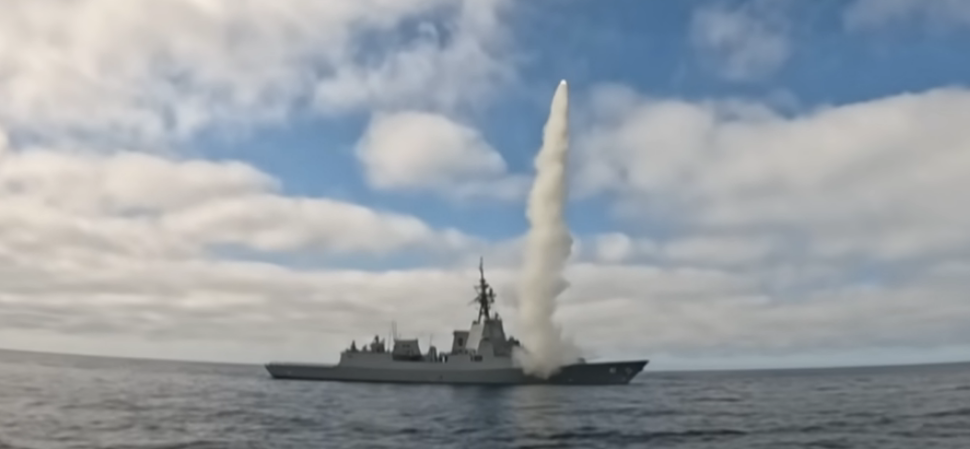Photos: YouTube Screenshots\Wikimedia Commons
The following is a letter written to Secretary of State Marco Rubio by former Rwandan Ambassador Dr. Theogene Rudasingwa regarding the rising humanitarian crisis in the Democratic Republic of Congo.

January 29, 2025
Dear Secretary of State Marc Rubio,
I write to you with a profound sense of urgency regarding the worsening crisis in the Democratic Republic of Congo (DRC) and General Paul Kagame of Rwanda’s role in perpetuating instability in the Great Lakes region. As someone who has served at the highest levels of Rwanda’s government and diplomatic corps, I have firsthand experience with Kagame’s strategic modus operandi, which combines deception, territorial ambition, and calculated disregard for human life.
Once again, history repeats itself. As I write, General Kagame’s forces, operating under the guise of the M23 militia, have captured Goma, a strategic city in eastern DRC. This action mirrors the events of November 2012, when Rwanda’s military seized Goma before international pressure forced a withdrawal. Thirteen years later, Kagame’s ambitions remain the same: destabilizing DRC to exploit its natural resources while diverting attention from his regime’s internal challenges.
The humanitarian consequences of Rwanda’s actions have been catastrophic. Millions of Congolese citizens have perished, and countless others have been displaced. Despite over two decades of United Nations peacekeeping efforts under MONUSCO, the region continues to suffer from violence and looting, primarily fueled by external actors, with Kagame’s regime being the most notorious. Numerous reports from the UN Group of Experts have documented Rwanda’s role in financing and arming proxy militias, yet international responses have been inadequate.
Kagame’s recent conquest of Goma must be understood within the context of his broader strategy. His long-standing territorial ambitions for a ‘Greater Rwanda,’ which would incorporate eastern DRC’s Kivu region, are at the core of his military incursions and strategic maneuvers. Since 1994, he has operated with impunity, using regional conflicts to maintain his grip on power and amass personal wealth. Rwanda’s mineral exports, particularly coltan, gold, and diamonds, are primarily sourced from illegal mining operations in DRC. The capture of Goma secures access to these resources, ensuring a steady flow of wealth to Kagame’s inner circle. Judging from his past behavior, this military campaign will not stop in Goma. His forces will now most likely advance to capture Bukavu in South Kivu, Kisangani, and potentially even Kinshasa to engineer a regime change unless he is stopped.
Two key factors have emboldened Kagame’s recent actions. First, the joint infrastructure and security cooperation between Ugandan President Yoweri Museveni and DRC President Félix Tshisekedi has heightened Kagame’s paranoia. His contentious relationship with Museveni has fueled fears of encirclement, prompting preemptive strikes to secure strategic territory. Second, the failure of regional and international mechanisms, including the East African Community’s military force (EACRF), the Southern African Development Community force (SAMIDRC), and MONUSCO, to deter Rwanda’s aggression has further emboldened him.
On January 16, 2025, Kagame convened the diplomatic corps in Kigali, delivering a speech laced with insults toward President Tshisekedi and the international community. His remarks were not just an expression of frustration but a calculated attempt to project dominance and deter international intervention. Kagame’s strategy relies on exploiting divisions among African nations and the reluctance of Western powers to hold him accountable.
The United States has been a critical ally of Rwanda since 1994, providing substantial financial aid and political support. However, this relationship has inadvertently enabled Kagame’s intransigence. The time has come for a fundamental reassessment of U.S. policy toward Rwanda. Continued support without conditions only exacerbates the conflict in DRC and undermines regional stability.

I urge you to consider the following actions:
1. Suspend Military Aid to Rwanda: U.S. military assistance should be contingent upon Rwanda’s withdrawal from DRC and an end to its support for proxy militias. By cutting off military funding, the United States can signal its disapproval and reduce Kagame’s capacity for aggression.
2. Impose Targeted Sanctions: Sanctions, including asset freezes and travel bans, should target individuals within Kagame’s inner circle responsible for orchestrating the conflict. This would disrupt the financial networks that sustain Rwanda’s illicit activities in DRC and globally.
3. Support Regional Diplomacy: The United States should work closely with African regional organizations, particularly the African Union and the Southern African Development Community (SADC), to develop a comprehensive peace plan that includes mechanisms for accountability and reconciliation.
4. Strengthen Humanitarian Assistance: The ongoing conflict has displaced millions and created a dire humanitarian crisis. The United States should increase funding for humanitarian aid, focusing on refugee camps and internally displaced persons in DRC.
5. Call for International Accountability: The UN Mapping Report, which documented atrocities committed by Rwandan forces in DRC, has been largely ignored. The United States should lead efforts to revive discussions on this report and ensure accountability for war crimes.

The stakes could not be higher. Failure to act decisively will not only prolong the suffering of millions but also risk escalating the conflict into a broader regional war. Cooperation among citizens and civil society organizations within East Africa is crucial to ending President Kagame’s dictatorship in Rwanda and his destabilization of the DRC and the Great Lakes region. By fostering cross-border alliances and partnerships, East African citizens can collectively demand accountability, promote peace, and advocate for democratic reforms to restore regional stability. Kagame’s actions are not isolated; they are part of a long-term strategy threatening the Great Lakes region. The United States has a moral obligation and a strategic interest in preventing further bloodshed.
As someone who once worked closely with General Kagame, I can attest to his determination to retain power at any cost. He views international condemnation as a temporary inconvenience, not a deterrent. Only sustained and coordinated pressure can compel him to change course.
The people of DRC and Rwanda deserve peace, security, and the opportunity to rebuild their lives. The United States has the leverage to influence this outcome, but it must act now. I urge you to prioritize this issue and lead efforts to end Kagame’s dictatorial and destabilizing activities.
Thank you for your attention to this critical matter.
Sincerely,
Dr. Theogene Rudasingwa
Co-Founder, Rwanda Truth Commission, and Rwanda Freedom Movement-ISHAKWE
Former Ambassador of Rwanda to the United States and Chief of Staff to President Kagame






